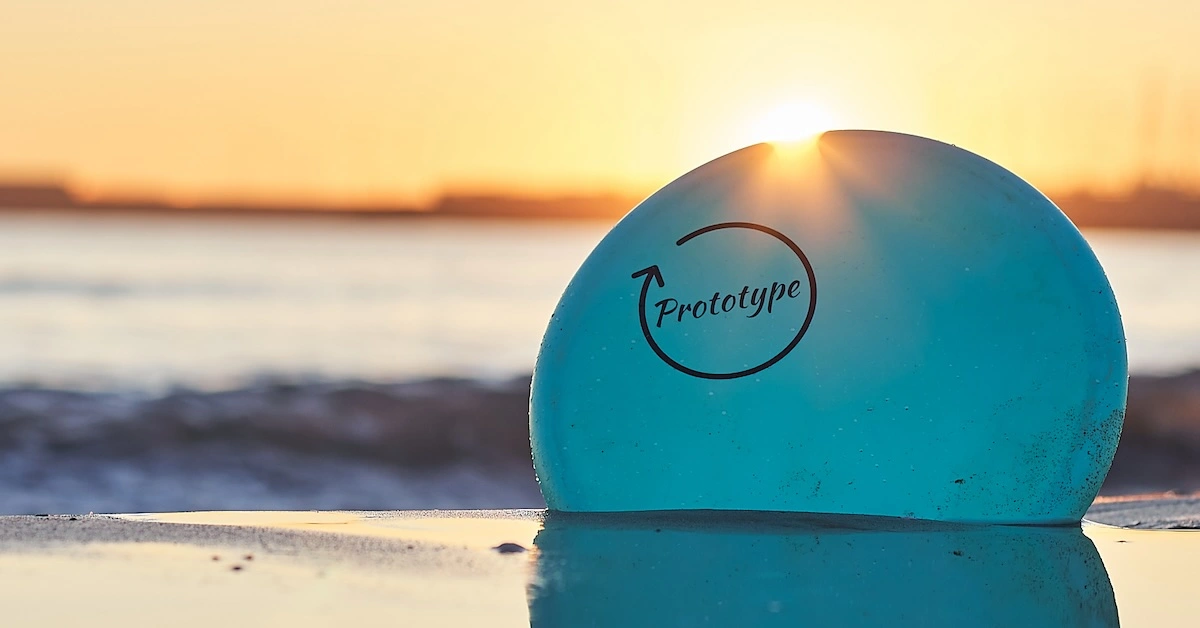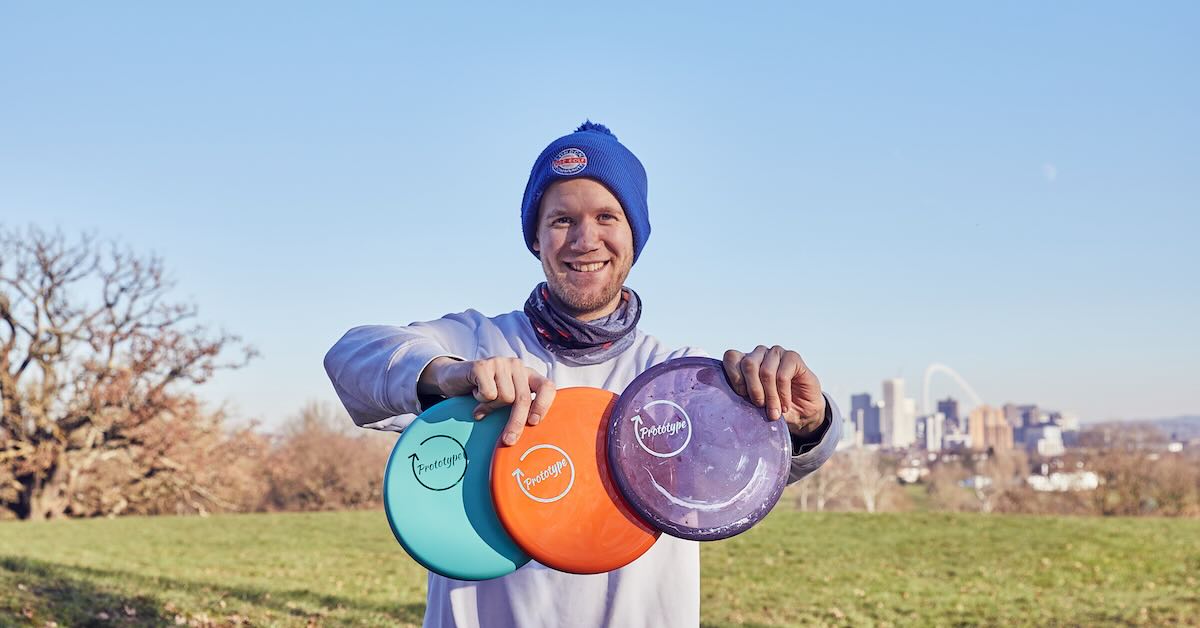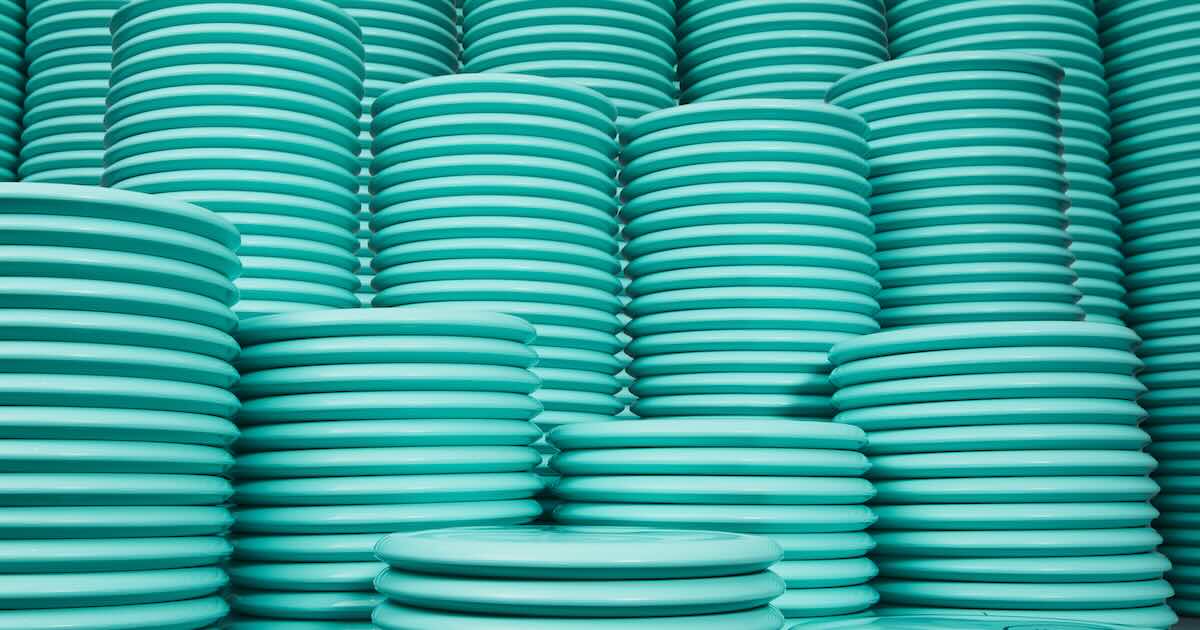It's no secret that plastic is a double-edged sword. Along with almost every disc golf disc, it's used in daily conveniences like bags and bottles and also in lifesaving medical devices like syringes and dialysis tubes. But most plastic never biodegrades and the majority of it isn't recycled worldwide.
The largest receptacle for plastic debris? The ocean. For instance, The Great Pacific Garbage Patch, a huge mass of trash swirling around in the North Pacific Ocean, is estimated to be around 1,600,000 square kilometers/620,000 square miles (about three times the size of France) and is made up of 99.9% plastic.
Newly started Ocean Discs wants to be part of the solution to this issue. They're joining the growing trend of businesses creating a market demand for recycled ocean plastic.
Introducing Ocean Discs
Ocean Discs is based out of London, England, and founded by Oliver (Ollli) Simonsen. Simonsen was born in Denmark, grew up in England, and developed his love for disc golf during two years spent living in Queenstown, New Zealand. When he returned to England, he started London Disc Golf Community as an events company that has since grown into a disc golf retailer as well. Simonsen's next goal was to create his own line of discs that would not only feel and fly great but also help steer the sport in a more sustainable direction.

"I originally wanted to use biodegradable plastic discs, but that was too challenging at this time," said Simonsen. "How do you choose the shelf life of a biodegradable disc? What's an appropriate number of years before it degrades? Can it remain PDGA legal as it starts to degrade? When is a degrading disc legal and then not legal? Environmentally, it was a cool idea, but it wasn't feasible for other reasons."
Simonsen eventually got the idea to use ocean waste plastic. He was particularly inspired by charitable organizations he would see collecting rubbish and encouraging others to do the same during his walks on the beach.
"Making discs from recycled plastic isn’t a new idea," said Simonsen. "Trash Panda, AGL, and others are already doing so. Rather, we have a more specific focus. No one has done much with ocean waste in the disc golf community yet. Ocean plastic waste is a huge problem."
Ocean's First Disc: The Sea Turtle
Founded in 2023, Ocean Discs launched a Kickstarter campaign to get funding for their first disc, the Sea Turtle. The campaign was fully funded in just 14 days and can be backed until May 15, 2024.
The Sea Turtle is marketed as a straight flying, torque-resistant midrange that will be manufactured in three types of plastic.

Ocean Waste Marine is Ocean Discs' baseline plastic that is made with 60% recycled ocean waste plastic. Ocean Waste Pacific is their premium recycled plastic offering, also made from 60% ocean waste plastic. The final plastic is Swirly Atlantic, a premium swirled plastic line. Unlike the other plastics, it is made entirely from virgin, or new and non-recyled, plastic.
Currently, the aforementioned disc manufacturer Trash Panda is the only disc maker who guarantees 100% recycled plastic.
Simonsen thought long and hard about whether or not to offer the Sea Turtle in virgin plastic, but based on his experience running the London Disc Golf Community Retail Store, he decided to offer both options at launch and see which plastic blends would be most popular amongst the disc golf community.
"Having run a retail store, virgin plastic discs outsell recycled plastic discs by a lot," said Simonsen. "Most people are on board with sustainability, but they still buy more virgin plastic discs. The thought for the first disc was that we would do both (virgin and recycled plastic) to test the waters and see what sells. What do people like? Where do we go from there with the next disc?"
Giving Back and Future Goals
Ocean Discs is already working to build brand awareness and help grow the disc golf community in its first year by sponsoring events. They supported The Wembley Open, located locally to their headquarters in London, England, an Earth Day Doubles event in Vero Beach, Florida, and an event for hearing impaired players.
"There are quite a few local disc golfers who are hearing impaired in the London community, which makes this a particularly meaningful event for us," said Simonsen.
After delivering the discs promised to their Kickstarter backers, Ocean Discs plans to use the funding to order their first large scale Sea Turtle run to sell to retailers. They aim to partner with and donate a percentage of their profits to the Marine Conservation Society, a U.K.-based charity dedicated to cleaner and healthier oceans.
"I saw the Marine Conservation Society on the beach on a family outing," said Simonsen. "They were providing people with bags and trash grabbers and encouraging them to pick up trash on their walk. I think it is important to partner with someone that is out there and visible. There are a lot of larger charities where it is harder to see the benefit and where your money goes. I like that they are local to the U.K. and you can physically go in person to collaborate and help out."
When all goes as hoped, Simonsen wants to design more discs and increase the ratio of recycled plastic in his company's products.

"The goal for our next disc is 80% or above," said Simonsen. "That will be success for us."
Creating discs that fly, feel, and weigh a desired amount is not an easy task and is equal parts art and science. While the Sea Turtle got approved by the Professional Disc Golf Association its first time around, getting the required weight and density right was not an easy task. Simonsen believes that with the knowledge gained from designing the Sea Turtle, Ocean Discs will be able to continue to use more and more recycled plastic while making consistently high quality, reliable discs.
"100% [recycled plastic] is absolutely our end goal," said Simonsen "Looking at the basic maths, I can't see a reason why 100% isn't doable."
